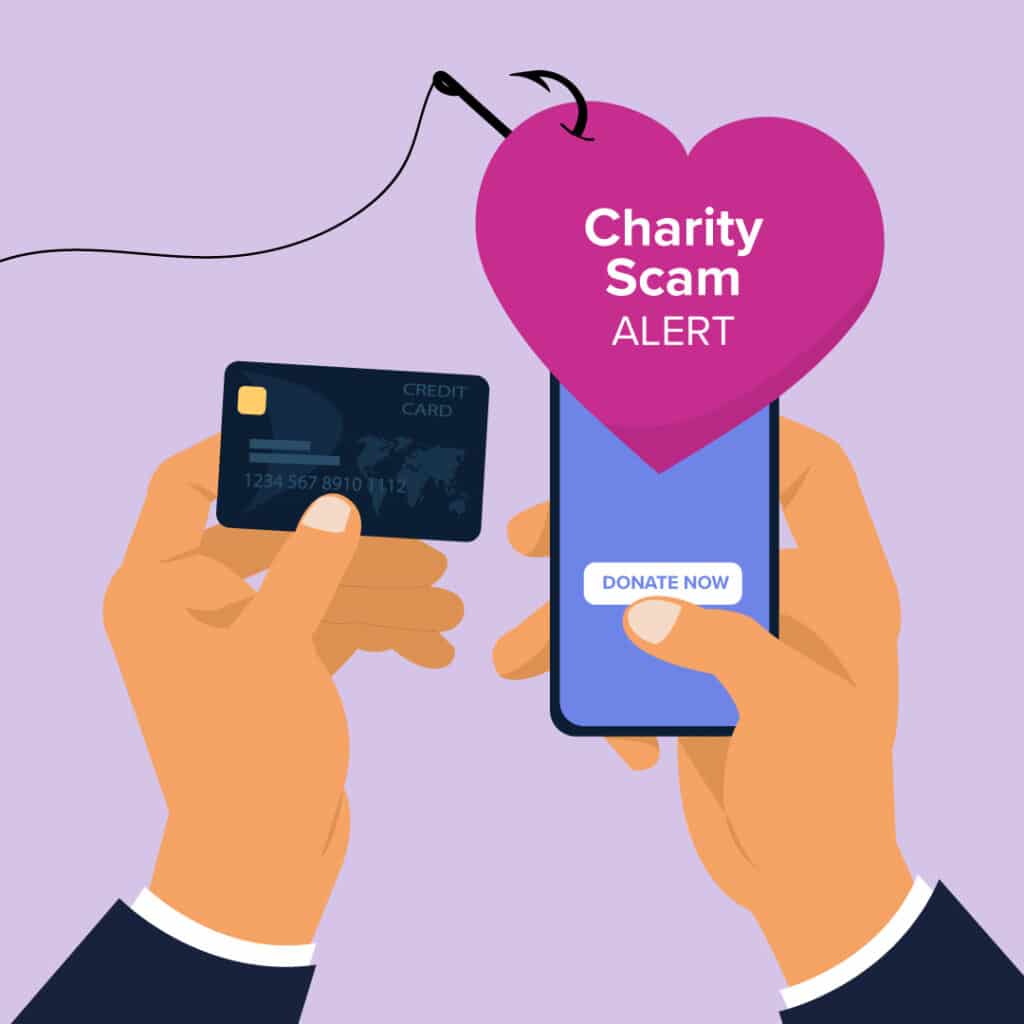
Cyclone Gabrielle brought severe weather conditions to many regions of Aotearoa New Zealand and unfortunately it also brought with it many charity scams.
Charity scams are fraudulent schemes that exploit people’s generosity and kindness. These scams can happen in various forms, such as fake charities that solicit donations or phony fundraising events that pretend to benefit a worthy cause. Unfortunately, these scams are becoming more common, and it’s essential to be aware of them to avoid falling victim to their deceitful tactics.
So what is a charity scam?
A charity scam is when someone poses as a charitable organisation or individual, soliciting donations from people under false pretenses. These scammers often use emotional appeals to tug at the heartstrings of potential donors, claiming to raise funds for a worthy cause or helping victims of natural disasters, or the ill.
They use different methods to approach potential victims, such as via email, phone, or social media. They may also knock on your door or approach you in public, asking for donations. Once they have your money, they vanish without delivering any promised services.
What are some examples of scams doing the rounds?
Banks are warning customers of “cyclone relief” text based and phone scams:
Westpac warns of Cyclone Gabrielle-related scam messages (1news.co.nz)
Jay-Jay exposes a scam “BNZ” bank caller (morefm.co.nz)
Consumers should also be careful at these times of door knocking scams and fake collectors purporting to collect money for Cyclone Gabrielle relief efforts.
As we hear of more we’ll update this blog regularly to list them here.
How to avoid being scammed by charity fraudsters
Here are some practical tips on how to avoid falling victim to a charity scam:
Do your research.
Take the time to research any charity or individual asking for donations. A quick online search of the Charities Commission website can help you determine whether a charity is legitimate or a fraud. Check the charity’s website, look for reviews, and check if they are registered with the government or other recognized authorities.
Be cautious of unsolicited requests.
Don’t donate money to any charity or individual that contacts you unexpectedly. Fraudsters often use unsolicited emails, phone calls, or text messages to target potential victims, so be wary of such communications. Instead, only donate to charities that you know and trust, or that you have researched yourself.
Ask for details.
When approached by someone seeking a donation, don’t be afraid to ask questions. Ask about the charity’s mission, the work they do, and how donations will be used. You can also request documentation that proves the charity is legitimate, such as a tax identification number or registration papers.
Don’t send money through a wire transfer or gift cards.
If someone asks you to send a donation through a wire transfer or gift card, be cautious as this is a red flag for a scam. Legitimate charities often have established ways of receiving donations, such as through their website or online giving platforms.
Keep your personal information safe.
Don’t give your personal information, such as your bank account or credit card details, to anyone that you don’t know or trust. Also, be wary of phishing scams where fraudsters pretend to be a charity to obtain your personal and financial information.
Report any suspicious activity.
If you suspect that you have been targeted by a charity scam, report the incident immediately. You can report scams to Netsafe and be directed to lots of other support services too.
In conclusion, charity scams are becoming more sophisticated, and it’s essential to be aware of them to avoid falling victim to their deceitful tactics. Always research any charity or individual before donating money, ask questions, and be cautious of unsolicited requests. Don’t send money through wire transfer or gift cards, keep your personal information safe, and report any suspicious activity.
By following these tips, you can protect yourself from becoming a victim of a charity scam and ensure that your donations go to the people who really need them.
For more scam tips and to report a scam, visit:





